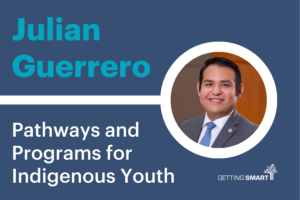Parents as Chief Advocates

Nancy Weinstein
Dear Fellow Parents,
Did you know that in addition to your responsibilities of Chief Caregiver, Chief Cheerleader and Chief Taxi driver, Chief Advocate is high on the list? If you have a child with special needs, you know exactly where I’m going with this. For those who aren’t familiar, you should know that at some point, your child, every child, will need help in a specific class, with a teacher who is not meeting their needs, with a previously undetected learning problem, with bullying. It’s the problem that doesn’t go away in a week, or even a month. It impacts self-esteem and starts to look like depression or anxiety. And you, my fellow parent, are the only one who will understand the depth of the problem. You will be the one to see the nightly struggle with homework, the tears that wait for the comfort of home, the lack of appetite, the lack of sleep. And then your time as Chief Advocate has arrived.
I’ve been there, and here are some strategies I believe can help:
Step 1: Listen to your child
Start off knowing that no child wants to be unhappy, spend excessive time on homework, or to get bad grades. Do your best to ask open-ended questions and then sit back and listen. Once your child understands that you want to help and not criticize, the floodgates will open. The best time to do this, in my experience, is bedtime. Snuggle up (if they will still let you), and ask them how their day was. Start by discussing who they sat with at lunch or who they partnered with in PE. The truth will come once they feel safe that you won’t blame or criticize.
Step 2: Talk to the teacher
Teachers want to help. Teachers can provide valuable insight your child can’t tell you. But they need to know you’re not there to blame them. The teacher may notice a social dynamic your child isn’t sharing or a subtle yet consistent problem. Or they can help you investigate: pull out old tests, last year’s reports, find patterns. They have critical data you need.
If you’re lucky, your search ends here. You can work with the teacher to address the problem directly. If it’s a social issue, work with the teacher, the school counselor, the principal, the parent of the child who may be involved. If it’s an academic problem, sometimes extra support is all you need. Keep in mind that most academic subjects are cumulative, so you probably don’t want to try just “waiting it out.”
Step 3: Keep Going
Even if the teacher says everything’s fine, you can’t stop here. Remember, you’re the Chief Advocate. You know in your heart your child’s not fine. Parents are the ones who first identify 70% of learning problems. If you’ve reached this point, the problem is unlikely to fix itself without your help. From here on in, there’s unfortunately no straight path to follow. But there are some “rules of the road” which I base on my family’s own, difficult experience.
We saw the first real warning signs in second grade. We were so grateful when they disappeared after a couple of very intense months that we stopped talking about it. Understandable? Yes. Mistake? In retrospect, yes. Had we gotten to the root of the problem back then, it might not have reemerged so powerfully later.
In third grade, the teacher saw the same signs we had noticed before: variability in performance; taking too long on assignments; getting stuck and not willing to listen to advice. And yet, our child was, “…a wonderful writer; kind child; capable student” The teacher thought there might be a learning “challenge.” She hinted at “something a cognitive assessment could help determine”. At the time, I didn’t understand why she wasn’t more direct. Years later I’ve come to learn how intricately complicated the intersection is between the legal and school system. That the mere suggestion of a cognitive assessment starts things moving in ways that a parent unfamiliar with the process could never imagine. There are many questions: Who needs to be involved? How long does it take? Who pays?
It turns out these are very complicated questions fraught with huge implications that take months to answer. Months while your child struggles, loses self-esteem, and is probably not happy. Months where you must remind yourself to never give up pursuing what’s best for your child. The school and teachers want to help. But remember how many other priorities they must juggle. You are the one for whom this is the number one priority. A very good child psychologist told me, “You must become the expert in your child’s problem.” Wise words. Read everything you can, talk to everyone you can. But draw your own conclusions on how best to help your child. Every situation, every child is different. This one falls on you.
The one positive part of this step is the comforting knowledge that learning problems can be effectively measured by an objective test. Over 100 years of scientific research says this is true. So if you can get your child a test, you will get answers. Or at least you know you can rule out certain issues with certainty.
Back to my story. We decided not to wait for the school and went down the path of a private cognitive evaluation. For most families, if you get this far, the specialist will identify the problem. And if you know what the problem is, address it. If you decide not to share this information with the school for personal reasons, that’s okay. But if you’re not a professional, do seek professional help. In many cases, if you start with a child early, you can effectively address the problem. But if you wait, it can easily snowball.
For us, the investigation did not end there. What the evaluation did do was rule out what the problem was not. We knew it was not a problem with attention, or math, or executive functions or processing speed and that it was not dyslexia. Our daughter definitely had her learning strengths and weaknesses, but nothing that could explain the behaviors we were observing.
By eliminating learning issues, we knew our problems fell in the emotional bucket. Unfortunately, emotions, unlike learning challenges, cannot be measured by an objective test. So get ready to muster a lot of patience. Support often requires the right help from the expert that connects with your child. In our case, we tried four doctors before finding the one that clicked.
The great news for us is that after a year or two of ups and downs, I have an amazing, well-adjusted 6th grader who has been able to flourish. In hindsight, I can say she’s an artist and has the soul of an artist. I had a lot to learn about how to comfort her emotional soul.
After all of this, I know one thing she believes with certainty: I will always be her Chief Advocate.
This blog is part of our Smart Parents Series in partnership with the Nellie Mae Education Foundation. We would love to have your voice in the Smart Parents conversations. To contribute a blog, ask a question, or for more information, email Bonnie Lathram with the subject “Smart Parents.” For more information about the project see Parents, Tell Your Story: How You Empower Student Learning as well as other blogs:
- What Personalized Learning Means in My Family
- 3 Ways Parents Can Spot Student-Centered Learning
- I Need A Learning Sherpa

Nancy Weinstein is the founder & CEO of Mindprint Learning. Follow Nancy on Twitter @MindprintLearn




Stacy Rubinstein
Thank you for the insightful advice and validating my experience. Very helpful.